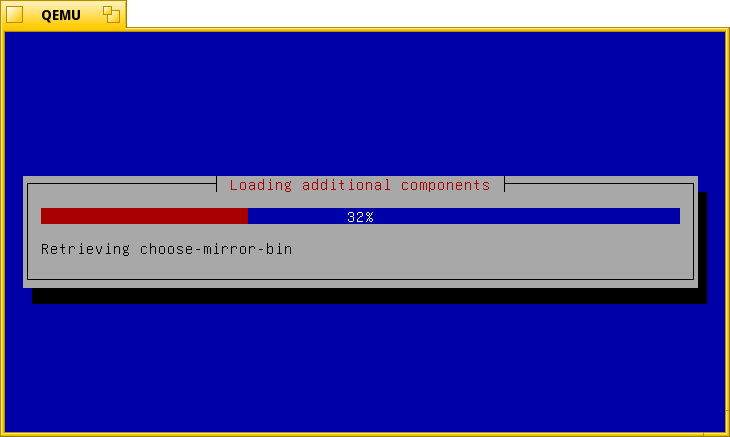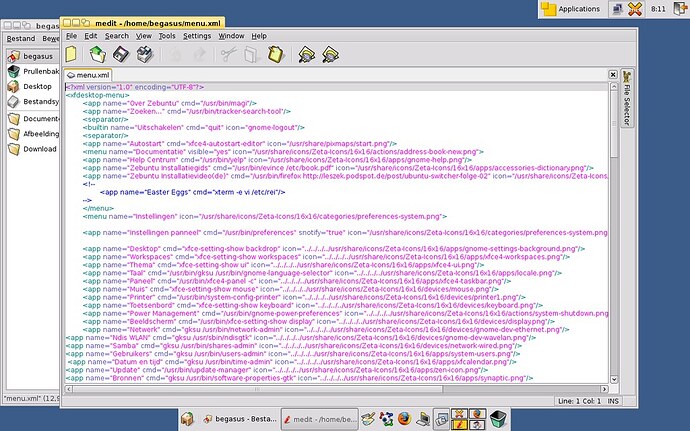i see the news about “ Debian GNU/Hurd port release” which can run about 65% of the software built for Debian GNU/Linux ( 50000 software for debian gnu/linux , so 65% means 32500 software for debian gnu/hurd)
one crazy hallucination, is there an OS named “debian gnu/haiku” ?
<cough>
Computer says “No”.
4 Likes
The whole debian gnu/“System” scheme is debian porting it’s userland to run on different kernels.
They did this for FreeBSD once, mostly because FreeBSD’s kernel then was more advanced than linuxes. But in essence this is just ripping out a component out of another OS not really ment for it and then trying to run debian on it.
This kind of works for Hurd because it is actually not designed for a specific userland.
For our kernel this would likely not give any benefits, in addition to beeing overly complicated.
In the end you’d get an OS that would run worse than Debian linux or Haiku, at which point you might aswell… just install debian linux, or haiku.
Which was kind of the situation with debian/kFreeBSD, just install FreeBSD instead. : )
1 Like
A long time ago there was also Debian GNU/MiNT, running on the MiNT kernel for Atari ST and TT machines:
http://web.archive.org/web/20040613163523/http://debian-mint.nocrew.org/
So, anything is possible 
I don’t think anyone has tried it with Haiku yet. You could attempt it, the idea is that you take Debian’s ‘debootstrap’ tool, run it on Haiku, see what happens, fix the problems, and repeat until you have a working Debian system in your Haiku machine.
I expect you will run into problems if you do this from a BFS partition, due to the lack of hardlinks. So, it means you have to have a boot partition in BFS, and a Debian partition using a different filesystem (ext4 seems a reasonable choice). Already this is starting to look as complicated (or more) as a regular Linux distribution, and we have not even started yet.
You will also find out that a lot of the software packaged for Debian does not take Haiku specificities into account. For example, they will try to use Linux inotify instead of Haiku node monitor. They will try to use epoll instead of our very recently added and still incomplete implementation of kqueue. And so on. So, expect a lot of work to fix all these problems. You will not get 65% of the software running just by a few hours of work. Getting there is the result of years of work from the Debian GNU/Hurd team.
It is the kernel of the GNU project, which provides the GNU part in Debian GNU/Linux. Historically the GNU project started using Linux until Hurd would be ready and… things got a bit out of their control 
But Hurd matches well with that userspace. Maybe the Haiku kernel, not so much…
1 Like
Yes indeed, hurd will likely match well to debian.
In essence, i think it is similar to how minix3 with netbsd works, replacing a monolithic OS kernel with a microkernel design base.
Though hurd has obviously been designed with the gnu tools in mind.
(Would be fun if our emulation would be faster : D)
Neptine 8 ok its not Unix its Linux and have Debian UI, i dont try it but can im work in Haiku whit a virtual Debian?, NeptuneOS is cool but dont like linux core need Unix more 
With regard to these sort of hybrids, the one that interests me is something called Haiku on Genode. This is an attempt to port our userland onto Genode guts. As far as I see it the benefits are the more modern architecture of Genode which are a generation more advanced than BeOS/Haiku and at least two generations ahead of Unix and Windows. It’s a technical match for Google’s Fuchsia.
If you want to be pedantic, GNU tools have also been designed with HURD in mind. The Linux kernel is only a kludge to allow things to tick over whilst the proper kernel was finished. 
I applaud the revised interest that GNU/HURD appears to be receiving lately, more diversity and breaking the Linux monoculture can only be good.
3 Likes
is there the linux distribution with 100% beos/haiku style ?
or the software “wine”/dosbox of beos/haiku version ?
I’ve heard of one way of styling Linux to look like Haiku. I believe it was old and unmaintained, however.
Haiku does have dosbox. HaikuDepot does mention Wine, though, it might not work very well.
There has been few different attempts but if they were looking more or less like BeOS, regardless of lack of attributes management, none of them had the feeling. Just like adding a MacOS decorator and a dock to launch apps won’t turn your Haiku in a Mac.
DosBox or Wine are made to run DOS or Windows programs so it’s for M$ software not an OS and therefore not Haiku. The best way to have Haiku on Linux is still a Virtual machine.
This is one of recent attempts star desktop documentation
You can have a look here but it’s certainly outdated Make Linux look like BeOS - by Bryan Lunduke
1 Like
Just found one of my older screenshots showing Zebuntu that did this (think that shot is almost 15years old) 
2 Likes
Debian 12.1 mentions:
- 119,396 packages total (bookworm, stable)
FreeBSD has around 31,763 ports (applications, utilities or libraries).
macOS has around 35,945 ports (applications, utilities or libraries).
Haikuports has around 3,319 ports.
Note: Over the years, a few people attempted projects porting the Debian packages to Haiku - as well as the Debian package management system. But calling something Debian GNU/Haiku is a misnomer - when relating to the core objectives and purposes of the GNU and/or Debian projects - as well as the Haiku project.
1 Like

